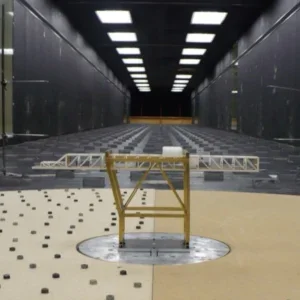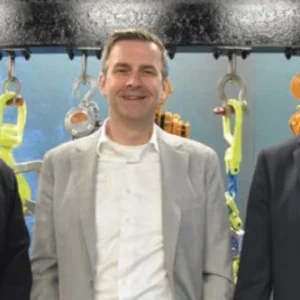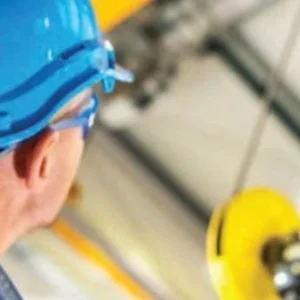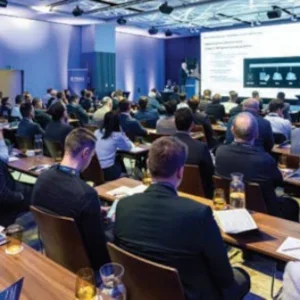The world was, almost literally, your oyster. Or your lobster. Or any other kind of expensive seafood you wished to indulge in while on your lavish overseas vacations, after spending the day filling your suitcase with a new designer wardrobe and cheap ciggies.
Now, however, with the pound below 1.4 dollars and, more significantly, close to parity with the Euro, overseas holidays may come to be a distant memory for many, who will perhaps reacquaint themselves with the humbler fare of jellied eels, cockles and mussels. While holidays in Britain can offer scenery and culture to rival anywhere in the world, beach umbrellas too often take on a completely different use from those on Mediterranean sands.
Britain in 2009 is in recession and is battening down the hatches for an economic storm. First to feel the fall-out from USA’s sub-prime mortgage crisis was the financial sector – the keystone of the UK economy – closely followed by the house builders and real estate agents. As the credit crunch took hold, mortgages become hard to find and house buying slowed dramatically. Some months later, the retail sector started to feel the squeeze, with several familiar High Street stores going out of business.
In January this year, just days after Bank of England base interest rate was cut to a record low of just 1.5% in a further attempt to ease the credit crunch, the British Chamber of Commerce (BCC) released the results of a survey of 6,000 member firms that showed that manufacturing was also now suffering, with employment expectations, investment, confidence and cash-flow all hitting record lows in the last quarter of 2008. The BCC forecasted that the UK economy will shrink by as much as 2.4% in 2009.
For the most part of 2008 the materials handling sector continued to thrive, continuing to report record business on the back of two or three previous strong years.
Rotherham-based crane builder Technical Cranes, for example, even expanded its production facilities, putting up a new building to provide an extra 1400 square metres (15,000 sq ft) of manufacturing space. Managing director Derrick Simpson says that 2008 was “a really good year – loads of jobs and plenty of enquiries”. One project, for construction company Balfour Beatty, was worth nearly £1 million, installing 14 radio-controlled cranes at a new plant for a railway project. Technical Cranes fabricated the box beams and used SWF crane kits with 5 and 10t hoists.
There were signs that prospects were changing, though. “One or two projects we had quoted for have been shelved,” Simpson says. These include a steel stockholder, which had plans for a 30t crane and magnet.
Come October, with the value of the pound plummeting, the market took a dramatic downturn.
Mike Homer, project manager with lifting tackle supplier Gunnebo Industries, says that the strong first nine months of the year were enough to see Gunnebo achieve UK sales in 2008 slightly up 2007. “Until October there were ìno problems at all”. And then “not so much a tap being turned off; more like a washer needs changing.”
As a company that supplies equipment only to distributors, Homer acknowledges that Gunnebo is one step removed from the front line. His view is based on what his distributors tell him. “No one is saying to me that it’s terrible but it is slowing down. Everyone is wary, waiting to see what 2009 will bring,” he says.
John Evans, sales and marketing director with Red Rooster, says: “I travel around the UK quite a bit and overall it’s very depressed.”
Despite the gloomy overall picture, the reality for the lifting equipment business – so far, at least – is a rather more mixed picture. Those hit hardest are those who import goods from the Euro zone. “The collapse of the pound in October has had a dramatic effect on our pricing,” says the UK distributor of one Euro zone equipment manufacturer.
On the other hand, those UK companies with a strong export business can only benefit from the devaluing of the pound, making their products less expensive to overseas customers.
Evans says that Red Rooster’s strong export business, particularly to the oil sector, has proved to be “our saving grace.” Turnover in 2008 was up 15% on 2007, he says. The company’s export markets include India, Nigeria and the Caspian Sea region, supplying lifting equipment to service companies who might be based in Aberdeen but are working on contracts worldwide.
However, as oil prices have come down, Evans expects demand to slow. There is no investment in exploration at the moment, he says because prices have come down.
“We expect the first quarter of 2009 to be hard months for us. Export demand is hard to predict and so it is hard to budget. We have a few large export enquiries that if they come to fruition, then 2009 should be good for us.” These include a railway project at tender stage and an oil project.
On the domestic front, he says, “there is nothing except for the Games in London that will have any impact in the UK for us. Even there, there’ll not be much, only if they refurbish existing buildings and need air hoists.”
Red Rooster experiences both sides of the currency fluctuations. Exchange rate movements have meant that the cost of these has gone up by more than 25%, Evans says.
On the other hand, the fall in the pound brings benefits when exporting the load cells that Red Rooster produces in Aberdeen. “But that makes up only 20% of our business,” he adds.
One of the last remaining UK crane manufacturers, that produces its own hoists and complete crane kits, is Street Crane. With exports accounting for more than 60% of its business, it is perhaps unsurprising that its managing director Andrew Pimblett takes a far more positive view of his company’s prospects and has seen no fall in demand since the autumn.
He says: “Conservatively, we are expecting our overall sales for 2008/09 to be comfortably ahead of 2007/08 – and that too was a very good year. From April to September, we saw like for like monthly order intake up to 100% higher than the previous year and even up to November there was no noticeable fall off.”
He continues: “We know from past recessions that the big projects carry on. The man down the road with a small workshop who wants a five tonne standard crane will put his project on hold, but long term major capital works continue. If you are building a power station or a waste incinerator that will have a working life of perhaps 40 years – this will go forward regardless of any short term downturn.”
Until a few years ago, exports accounted for only 40% of Street Crane’s sales. The increase in exports has come about, Pimblett says, because of new product development and active international partnering to become a supplier of kits and components to other crane builders overseas.
Early last year Street Crane launched its ZX6 and ZX8 hoists, specifically designed for world markets and the result of a £1.5 million investment programme. New distribution arrangements have been made with two partners in the USA, two in the Middle East, two in Australia and one in India. Most of these new distributors have taken consignment stocks so that they can offer Street Crane hoists on their own locally built crane structures. These new distributors join an existing network of partners around the world that Street Crane has developed over the last decade.
“The depreciation of the pound is also working to our advantage,” Pimblett confirms. “While we have some components sourced in Euros the overall effect of the currency changes is that our product is 25-30% more competitive in the Euro zone. Conversely, competitors seeking to sell into the UK from Europe face a major competitive disadvantage. A similar situation now exists with North America, where the two dollar pound was a severe handicap, but current rates make products like the ZX6-8 very competitive there.”
To cope with the order intake Street has committed £750,000 to a factory extension that will increase the workshop area by around 30% and add a new steel stockyard. The new facilities come on stream early in 2009. To meet immediate production space needs in the main factory, the company has leased additional warehouse space to relocate its parts storage and some CNC machines.
“It is clear that we have a two speed economy,” says Pimblett, talking up his company’s prospects. “Sectors such as finance, housing, retail and automotive are certainly suffering. Our success, and that of others who are doing well, is based on three factors: facing outward to the world and not just relying on the UK, investing in world-class product development to meet world demand and, finally, chasing markets in the petrodollar economies that are keen to broaden their industrial and economic infrastructure. In the UK we expect that capital expenditure will continue from engineering companies supporting oil and gas industries, in defence, power engineering and green technologies.”
While exporters clearly benefit from the reduction in the value of the pound, this is somewhat mitigated by reduced global demand, since the financial crisis that began in the USA has spread far and wide. The UK Office of National Statistics reported in January 2009 that despite the fall in value of the pound, the trade gap actually widened in November 2008, with the value of imports falling 2% but exports falling 6%.
The problems facing manufacturers prompted the Confederation of British Industry’s deputy director-general, John Cridland, to comment in January: “The downturn in the UK manufacturing sector has gathered rapid pace over the past few months and is now on a scale not seen since the early 1980s. With demand in the UK falling further, and the contraction in overseas markets swamping the competitiveness gained from sterling’s depreciation, it looks like the sector will regrettably be facing more pain in the months ahead.”
Even companies like Street Crane, that are able to focus on exports and on end-user sectors that are relatively recession-proof such as defence and energy, may be successful in minimising the impact of the global downturn but they are unlikely to remain totally immune.
A viewpoint from LEEA
There are no formal industry surveys of the lifting business in the UK. The Lifting Equipment Engineers Association, however, which counts much of the industry among its membership, has good view of what is going on.
Derrick Bailes, who retired as LEEA chief executive at the end of the year, offers a picture that is not all bleak. He observes: “One indicator is the take up of our correspondence training courses. Our academic year starts at the beginning of October with enrolment in September. Back in the early 1990s enrolment dropped by nearly 50% and I half-expected the same in 2008.
However, although it started slowly we finished with more or less the same as recent years despite also running practical training courses which to some extent serve the same market and are therefore an alternative. Overall training in 2008 was up on previous years with 857 trainees in total on the various courses.”
He adds: “The other indicator is membership renewals. Our membership year ends on 31 December and we send out renewal invoices at the end of November. We have had some rationalisation arising from one member acquiring another and we have had a couple of general inspection companies asking for deferment as they haven’t had any work in that lifting equipment sector recently.” Therefore, he says, there is no evidence of companies going out of business.
However, he recognises that hard times may be ahead for the industry. Bailes concludes: “My overall impression of the UK to date is that we are still to some extent in the calm before the storm. The storm has clearly hit the financial sector and more recently it has passed on to the retail sector and is now impacting on manufacturing so I guess the service sector will not be far behind.”






